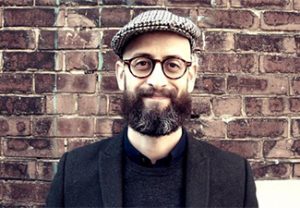
- This event has passed.
Kant & Post-Kantian German Philosophy Group Workshop (G. Anthony Bruno, Royal Holloway, London)
Friday September 16, 2022

The Kant & Post-Kantian German Idealism Group is delighted to host a day-long workshop to discuss a book manuscript (under contract with Oxford University Press) titled “Facticity and the Fate of Reason” by G. Anthony Bruno (Royal Holloway, University of London).
Discussants will be: Owen Ware (Toronto), Tarek Dika (Toronto), Karen Ng (Vanderbilt), and G. Anthony Bruno himself.
Schedule
About “Facticity and the Fate of Reason”
“Facticity and the Fate of Reason” concerns a question facing all post-Kantian thought: can a science of the conditions of intelligibility tolerate brute facts? The concept of facticity is associated with phenomenologists like Heidegger and Merleau-Ponty, for whom it denotes brute conditions of intelligibility like the world, mortality, embodiment, and intersubjectivity. This suggests an affirmative answer to the post-Kantian question. But scholars overlook that ‘facticity’ predates phenomenology. It is a concept from German idealism, whose main proponents answer the post-Kantian question firmly in the negative. Fichte coins it in 1799 to denote the intolerable contingency of brute conditions of intelligibility, i.e., conditions that are presupposed by and thus externally imposed on reason. A science of the conditions of intelligibility must eliminate brute facts if it is to be absolute, as Fichte says, or presuppositionless, as Hegel says. Eliminating brute facts, moreover, requires a new logic for deriving conditions of intelligibility from contradictions arising in reason alone, a genetic logic that Fichte invents and Hegel develops into dialectical logic. This development in logic provokes Heidegger’s objection that dialectical meaning presupposes brute facts about the dialectician’s lived situation, facts whose meaning can only be interpreted hermeneutically. Thus, the untold story of the concept of facticity contains both the birth of dialectical logic and the deepest methodological divide in post-Kantian thought, viz., between German idealism and phenomenology. I offer the first telling of this story, while arguing from a phenomenological perspective that contemporary metaphysics must reckon with brute facts in any account of intelligibility.
If you would like to attend, please contact Nick Stang or Ethan Millar-Virkutis.
The Kant & Post-Kantian German Idealism Group is a a subgroup of the History of Philosophy Research Group, which focuses on European philosophy in Kant and post-Kantian traditions.
SHARE